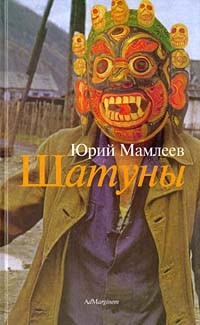T turns out to be a strange letter for me and Russian
writers: there are some big-name classics I love but not much (meaning, really,
nothing) yet in terms of contemporary favorites…
 |
| Ilya Repin's 1901 Tolstoy |
And then there’s Ivan
Turgenev, another writer I seem predisposed to
reread: the generation gap in Fathers and Sons only got better with age (my own, anyway) and I loved my second reading
about the superfluous man who’s the title character in Rudin. Even so, Nest of the
Gentry, which I’ve only read once, might be my very favorite Turgenev thus
far, with its superfluous man and ideal woman. I’ll readily admit my memories
of the book are very skewed by Andrei (Mikhalkov-)Konchalovsky’s adaptation of
the novel: the crumbling house and lush outdoor scenes have stayed with me. There’s
still plenty of Turgenev left for me to read for the first time, including Smoke and “King Lear of the Steppes,” plus
I feel like I should give A Hunter’s
Sketches another chance after reading (and not liking) the book years ago
in grad school.
As for poets, I’ve always enjoyed Fedor Tyutchev (Tiutchev), and not just for “Умом Россию не
понять,” the famous poem about how Russia isn’t a country to understand with
your mind. It’s four wonderful lines you can read in a multitude of translations,
here.
I suspect part of my enjoyment of Tyutchev comes from the fact that a Russian
musician friend gave me a book-and-cassette set years ago… I started listening
to poems as I read, feeling the rhythms and words, and even memorizing lines.
As I type, I realize how rich the letter T is for me in terms of sound, which
is a hugely important part of my translation practice. Professor Gary Saul
Morson read passages of War and Peace
and Fathers and Sons to my class of
history and literature students, and then I came to have the Tyutchev cassette.
Then, just last year, I was also extraordinarily fortunate to hear Boris Dralyuk and Irina Mashinski’s
discussions and readings of “Field Hospital,” their translation of Arsenii
Tarkovsky’s “Полевой госпиталь,” during
last summer’s Pushkin House Russian Poetry Week in London and Translators’Coven in Oxford; the “Field
Hospital” translation won Boris and Irina the 2012 Joseph Brodsky/Stephen
Spender Prize. Which reminds me: if you’re planning to submit an entry for this
year’s Compass
Translation Award, you only have until July 31! This year’s poet for
translation is, yes, Andrei Tarkovsky, a most worthy choice.
As for T writers for further reading... Well, after reading
plenty of Iurii Tynyanov’s literary
theory years ago, I want to read some of his fiction: I’ve had a wonderful old
edition of Tynyanov’s “Lieutenant Kizhe” on the shelf forever and one of you
has an enduring love for his Young
Pushkin. And then there’s Aleksei K.
Tolstoy and his Prince Serebryanny (a.k.a. The Silver Knight), an historical novel set during the rule of Ivan
the Terrible that another friend has recommended more than once. As for contemporary
writers, Tatyana Tolstaya’s The
Slynx was disappointing for me but I may give her new story collection,
Light Worlds, a try. There’s a fun
English-language piece, here, from
Art. Lebedev Studio, about designing the book.
Up Next: I’m very
much enjoying Evgenii Chizhov’s Перевод с
подстрочника (literally Translation
from a Literal Translation) but it’s thick, meaning a couple books written
in English about the FSU will probably come first.

